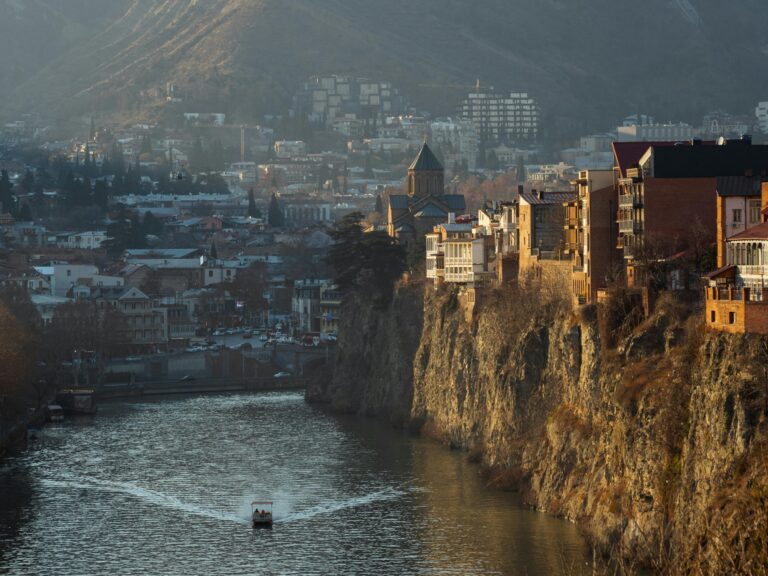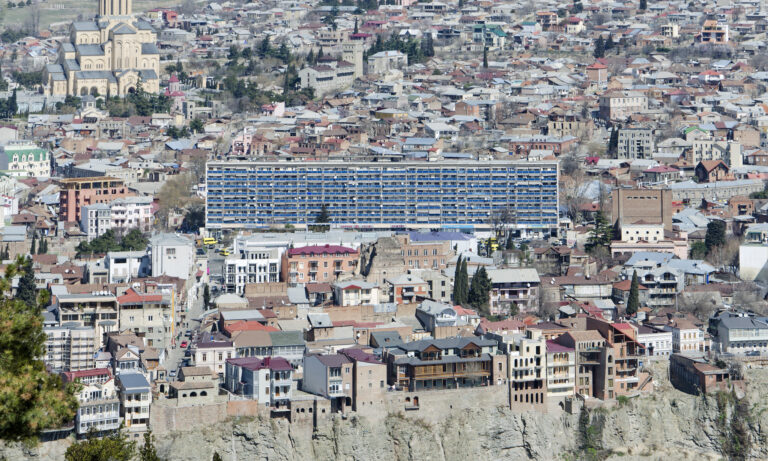China’s Growing Interests in the Black Sea Region

Amid a major shift in Georgia’s foreign policy away from its traditional fixation on the West toward Asia, China has successfully tapped into this emerging opportunity by aiming at expanding its presence in the Black Sea region.
On May 29, the Georgian government announced that the winner in the bid to build a massive deep seaport at Anaklia on Georgia’s Black Sea coast will be the China Communications Construction Company Limited and the Singapore-based China Harbour Investment Pte. Ltd.
With this ends a long story of uncertainty over the project which has defined Georgia’s ambitions since re-gaining independence in 1991 to turn into a major transit country in Eurasia by connecting the EU to Central Asia and China.
Chinese companies were long expected to win the tender for the Anaklia port. It is their second attempt after the failure in 2015 when first major bid to build the port was made. Back then, an American consortium won, though because of internal political complications the project was eventually scrapped in 2020. Additionally, there were geopolitical considerations which could have led the Georgian government to abandon the idea, as Russia was understandably against heavy US presence in the region. Eventually, it seemed that the US side was not particularly interested in the construction of the port either as its main goal was to keep Chinese companies at bay.
Plans to re-start the project were unveiled in 2022 and the Georgian government suggested it would retain 51 percent stake in the future port. If constructed, Anaklia would become second deep seaport in the eastern Black Sea region after Russia’s Novorossiysk.
Natural Development
The success of the Chinese consortium follows an uptick in Georgia-China relations in the recent years. Since 2017, the two countries have enjoyed free trade regime. In July 2023, the two countries signed a strategic partnership and starting from June this year China lifted visa requirements for Georgian nationals. Moreover, bilateral trade has been steadily growing, though still far below the expected levels. Chinese companies have also been building critical cross-country infrastructure such as tunnels, bridges, and roads in one of the most difficult to traverse territories of Georgia – the corridor which effectively connects east and west parts of the country.
Moreover, China’s recent push in Georgia cannot be disentangled from dynamics in bilateral relations between Georgia and its Western partners as well as wider geopolitical developments in the South Caucasus and the Black Sea region.
With the war in Ukraine, the Black Sea region has become an important arena of geopolitical competition with growing economic and transit importance. Given China’s own growing profile in Eurasia, its stepped-up involvement in the region was only a question of time.
Georgia’s changing domestic and foreign policy outlook have also led to the door opening wider to Beijing. Tbilisi has entered a turbulent period in relations with its Western partners, with ties souring since the war in Ukraine began and especially since the re-introduction of a law on externally funded NGOs. Though Georgia has received a candidate status from the EU in 2023, given criticism from Brussels, a longer term perspective on Tbilisi progressing toward the full membership is now less promising.
Georgia has therefore pursued a multi-vector foreign policy which involves close simultaneous ties with major Eurasian as well as Western partners. Mastering this game is a difficult task, but it has created a favorable momentum for Tbilisi’s relations with Beijing. This is especially so since the idea of partnership is more comfortable than alliances for the Georgian leadership and provides for a great deal of liberty in foreign policy.
The eruption of the war in Ukraine and the ensuing sanctions on Russia also had its bearing on the east-west connectivity between China and Europe. If before 2022 most of the containerized land trade went through Russia, the war in Ukraine opened up the prospects for the Middle Corridor – the route which runs from the Black Sea, crosses the Caspian and goes all the way via Central Asia to China’s westernmost region of Xinjiang.
Though the idea of the Middle Corridor, of which Georgia is a central node, is not new, China has begun paying attention to the initiative in earnest only after Russia’s invasion of Ukraine. For instance, Beijing has pushed for the quick implementation of the long-stalled China-Kyrgyzstan-Uzbekistan railway. Public pronouncements by Chinese analysts and politicians also reveal a marked shift toward embracing the idea of the Middle Corridor. The construction of the Anaklia deep seaport therefore fits into this overall geopolitical vision increasingly favored by China.
In no way, however, does Beijing consider abandoning the Russian route. China and Russia have grown increasingly close both economically and politically. At best, for China the Middle Corridor could serve as a complimentary route attracting at its potential peak around 20 percent of the containerized trade between China and the EU, as per the World Bank study.
(Un)comfortable Russia
Yet, Russia might not be entirely happy with seeing China growing more active to its south. In contrast to Central Asia, the region which borders both Russia and China, and where the two have largely agreed to downplay their differences, China in the South Caucasus is a completely new development. Indeed, the area has traditionally been seen as a space of Russia-West competition. Moreover, since Anaklia is close to the division line between the Russia-occupied Abkhazia and the rest of Georgia, Chinese presence might serve as a powerful deterrent of potential Russian military moves on the Georgian territory.
Russia, which has historically favored north-south transport and trade corridors, would not be entirely happy with seeing the east-west connectivity developing to its south. Yet Russia has no other choice but to observe the unfolding game. China is still a far more comfortable player for Moscow than the collective West. Beijing is not considered as an existential threat which seeks diminution of Russian influence or demands strict compliance on governance and other issues, contrary to the rules-based EU and its institutions. In short, Russia would still prefer to deal with a transactional China than the West.
In that way, Russia and China might agree to scale down potential disagreements in the South Caucasus, focusing on their general opposition to the collective West. The growing Chinese presence in Georgia could widen the gap between Tbilisi and Brussels/Washington politically. There is little that the West could do but to adapt to the evolving dynamics on the ground. At the same time, in practice, the construction of the Anaklia port could actually help the EU to expand the Middle Corridor, which is also in its interest.
In the exacerbating competition over traditional and emerging new trade routes across Eurasia, China has upped its game by actively looking at the Middle Corridor. Though unlikely to replace the Russian route, the corridor nevertheless holds a significant potential and its development should be closely observed.
Written by
Emil Avdaliani
emilavdalianiEmil Avdaliani is a research fellow at the Turan Research Center and a professor of international relations at the European University in Tbilisi, Georgia. His research focuses on the history of the Silk Roads and the interests of great powers in the Middle East and the Caucasus.


